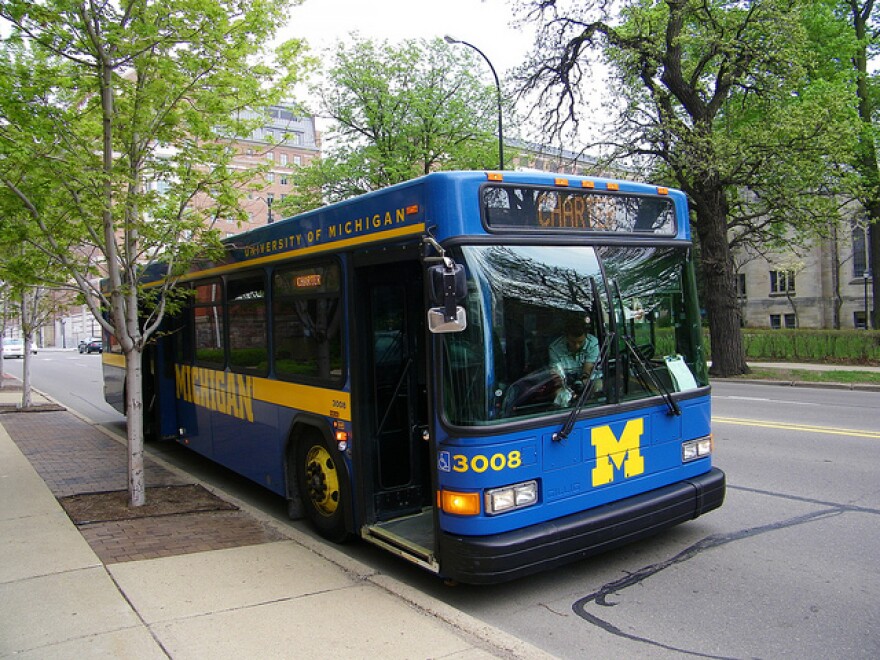University of Michigan officials say they are committing $14 million to cut greenhouse gas emissions, reduce solid waste sent to landfills, protect local water supplies, and support local food supplies.
In a speech, University of Michigan President Mary Sue Coleman said the changes are a new chapter for the university, "one that will alter the face of our campus and, more important, the character of our teaching, research and impact as a global leader."
Officials listed goals they hope to meet by 2025 in a press release:
- Cut its greenhouse gas emissions by 25 percent, the equivalent of removing nearly 42,000 cars from the road.
- Make the university transportation system more efficient – decreasing vehicle carbon output by 30 percent for every person in the car, truck or bus.
- Shrink the amount of waste sent to landfills by 40 percent.
- Protect the Huron River through best-in-class storm water control strategies and by applying 40 percent fewer chemicals to campus landscapes, and ensure that at least 30 percent of stormwater runoff does not flow into the Huron River.
- Promote sustainable foods while supporting more Michigan farmers and producers. From the residence halls to the unions and hospitals, the university is introducing new purchasing guidelines and making a commitment that at least 20 percent of U-M food comes from local and sustainable sources.
Officials say some of changes on campus will be noticed "almost immediately": the purchase of 37 hybrid vehicles (including buses), a solar panel installation on North Campus, a geothermal system for the Weisfeld Family Golf Center, and newly renovated or constructed dining halls will go "trayless" (so students don't pile on food they end up tossing in the garbage).
The Associated Press reports the $14 million the University is committing to sustainability augments other sustainability spending by the University:
That's in addition to $64 million in energy-efficient construction activity and $20 million supporting on-campus sustainability efforts. The university says its plan is among the broadest of its kind, though efforts are under way at many campuses, including Michigan State University, Miami University in Ohio, University of Oregon and University of Utah.
Donald Scavia, the director of UM's Graham Environmental Sustainability Institute and an advisor to President Coleman on sustainability, says the commitments and goals are important, "but more impressive to me is the emerging culture shift on campus. I believe the high levels of focus, energy, and collaboration now in place throughout the university are the most significant steps in driving progress toward all of our sustainability goals -- in education, research, and operations."



